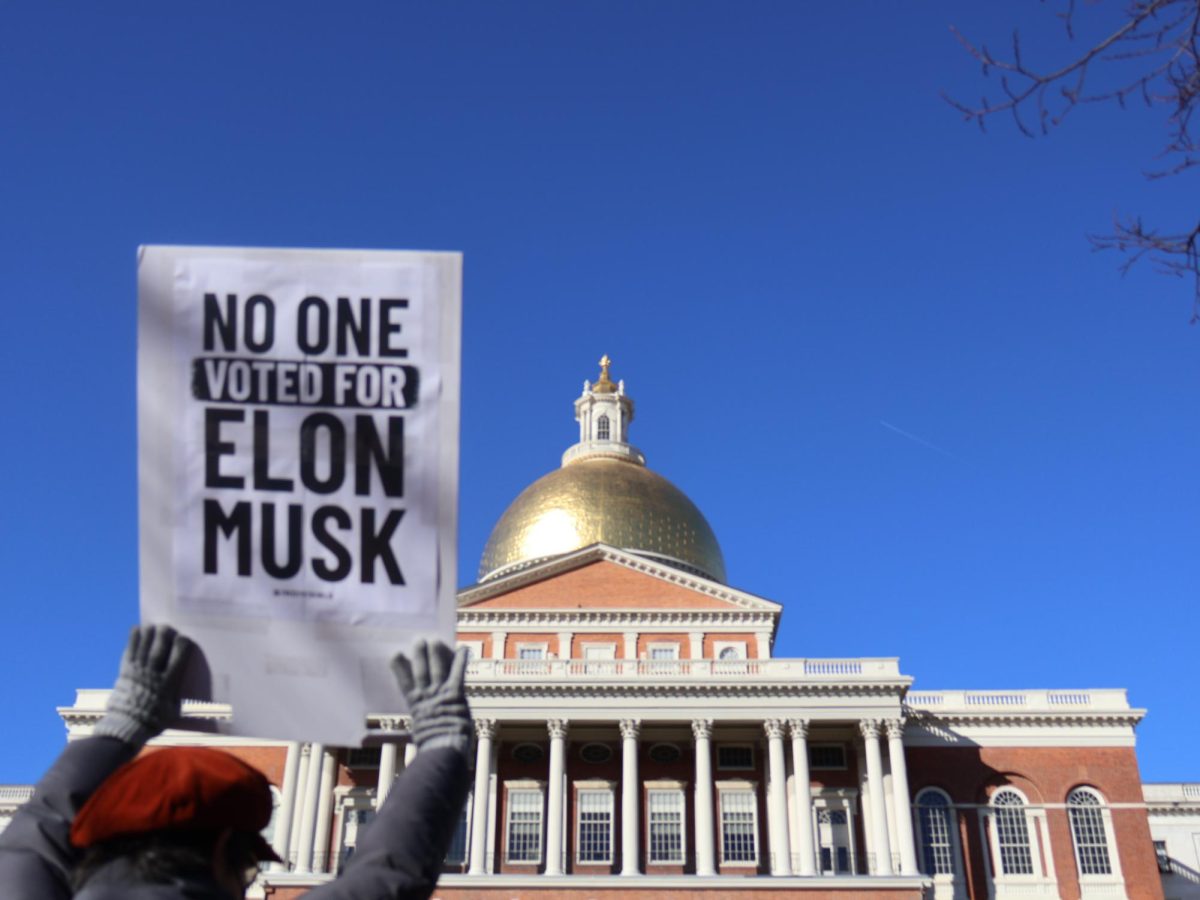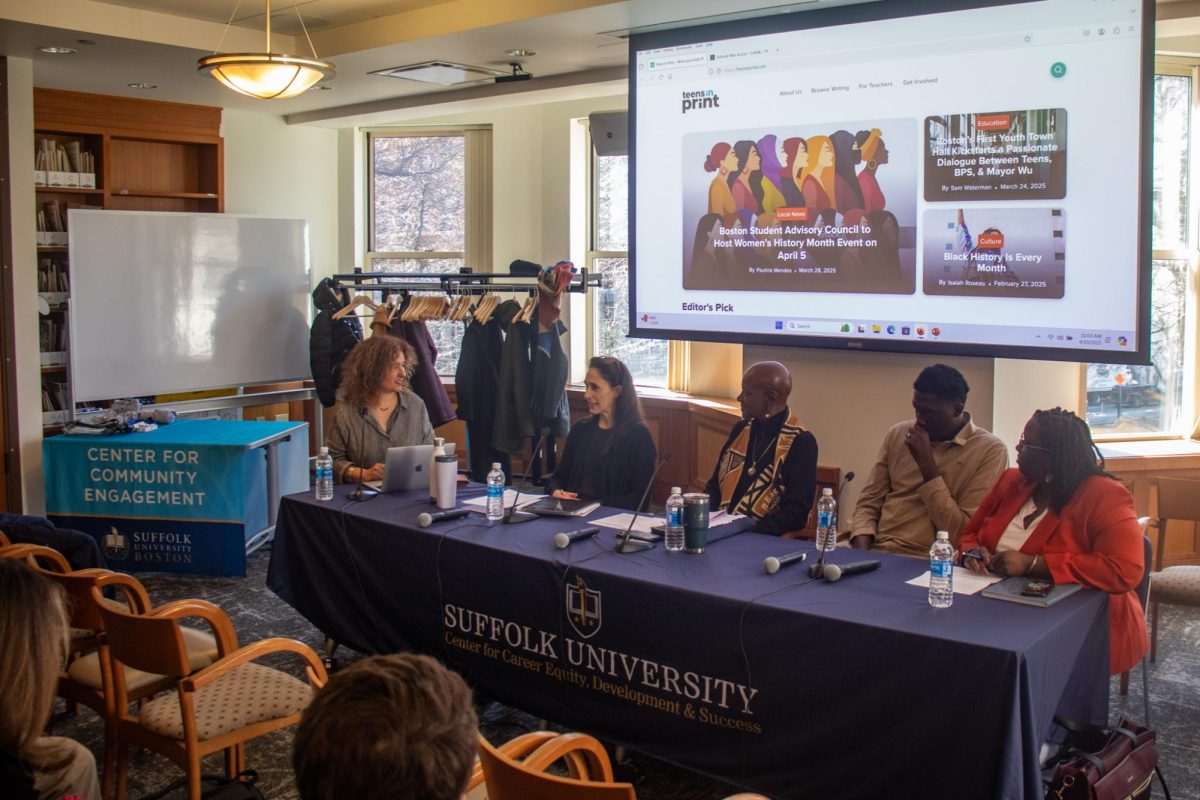Many gathered at the Cambridge Innovation Center on Monday to hear Paul Kirshen and Kirk Bosema give a talk on Climate Change and the Future of Boston’s Coastline.
The talk was hosted by Long Now Boston, an ideological group that aims to make long-term thinking and planning more commonplace in a world filled with short-term solutions. Paul Kirshen Ph.D., professor and director of the Sustainable Solutions lab at UMass Boston and Kirk Bosema, a coastal engineer with the Woods Hole Group, spoke about the future progression of coastal flooding and ways Boston can avoid damages.
The pair presented their findings on the feasibility of a coastal barrier in the Boston Harbor and alternative shore-based solutions for flood prevention.
Bosema explained that in the wake of super-storms like Hurricane Sandy, cities across the country have been prompted to assess their flooding vulnerabilities and create resiliency plans. With its harborside location and extensive underground transit operation, Boston has a plethora of potential flooding vulnerabilities.
They described the creation of a coastal barrier inside of Boston Harbor as one option for resiliency, which would help keep excess water out of the city during large storm events. Research conducted by Kirshen and Bosema concluded that the barrier would be an ineffective long-term preventative flooding method.
“[The coastal barrier] is not the silver bullet for climate change,” said Bosema.
Instead of a barrier, Kirshen suggested the city adopt shore-based solutions.
“The options to this barrier system was elevating the shoreline, but not elevating the shoreline by building ugly concrete flood walls,” said Kirshen.“ Let’s elevate the shoreline by building parks and berms, that provide co-benefits for the communities, that bring green spaces into the community.”
In contrast to the proposed coastal barrier, the idea of community enhancement appeared to be more beneficial from a design and financial standpoint.
“We’re not putting people in Boston in a fishbowl,” said Bosema in agreement with the co-beneficial solution.
Enthusiastic about integrating functional and beneficial designs together, Kirshen and Bosema showcased models for city parks that doubled as natural buffer zones to flood waters. They emphasized ideas of resilient infrastructure and modular, flexible engineering in the design of these new spaces.
Even in the midst of a bleak situation, Bosema exuded optimism about the city’s future.
“I truly view this as an opportunity to reshape the Boston waterfront and frankly the Commonwealth of Massachusetts, I think there’s an opportunity to really create a new vision for how people interact with water and live with water,” said Bosema in an interview with The Suffolk Journal.
While this future looks promising, Bosema stressed that there is more to it than parks and green spaces.
“It’s not just projects, it’s also planning and policy,” said Bosema. “Policy changes really need to be implemented now to set that stage for the long term.”
Bosema expressed gratitude about Massachusetts’ progressive role in climate change resilience planning.
“[Boston] has done a pretty reasonable job at implementing policies,” said Bosema.
The notion that Massachusetts was at the forefront of climate resiliency planning was discussed several times throughout the night and took many audience members by surprise.
“I had no idea that Boston was as far down the planning road as it is,” said Fred Hapgood, a retiree and curator for local science lectures that attended the event, in an interview with The Journal.
“It’s also very refreshing to hear that we as [people from Massachusetts] are being progressive about it and we’re forward thinkers,” said Gretel Hartman in an interview with The Journal.
Looking to the future, Bosema believes Boston has the potential to be a model city for climate change policy.
“Boston is definitely trending in the direction of being a climate innovator, in terms of a climate ready city, of a green nature-based resilient city,” said Bosema. “There’s projects that I know about and discussions that are happening that really would put Boston on the forefront on how you deal with climate change specifically related to sea level rise and storm hits.”
However, this future will require changes on behalf of the public regarding the new designs of their cities.
He then showed the crowd potential designs of seaside communities with houses on stilts and canals as driveways.
‘The people that I know would have no problem with [canals] at all. Everybody’s been to Amsterdam, everybody’s been to Venice… and we all see its possible” said Hapgood.
“We have to be a little bit more speedy in our recognition in how things like green spaces can help,” said Hartman. “Change is hard and change is met with resistance a lot of times, so I think we have our work cut out for us. The question is can people embrace change at the pace we need.”


















